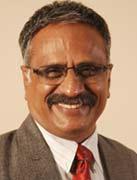
All of us -- Bill Gates, Narayana Murthy, you and me -- have 24 hours in a day. Not a second less or a second more. Why cant we all achieve what they have achieved in the available 24 hours? Time management is more about managing ourselves to make use of the time available and less about managing time. Acquiring such skills can lead to personal as well as professional success.
IT professionals are paid comparatively better than most of professionals from other sectors. This also means that they generate more revenue (per day/month) compared to others. Collaborating with partners located in diverse geographical areas and constant deadline often calls for changes in lifestyle like sleeping and eating at odd times and sitting in front of a computer terminal/laptop for long hours.
This gives rise to a variety of health problems. Recent evidence indicates that burnout rate is high among IT professionals. It is also observed that an IT professional in India spends longer hours compared to those in countries like the USA, for similar kinds of assignments.
Avoid MUDA
Fundamental principle of improving quality of time utilisation is to identify and avoid MUDA, a Japanese term for waste. Pareto Principle which means that 20 per cent of the activities we carryout produce 80 per cent of the output/results can be usefully applied here. The remaining 80 per cent of the activities account for about 20 per cent of the outputs or results. This is where MUDA lies. Prune them ruthlessly, using an important-urgent matrix plan to move to high productivity and proactive tasks (important, not urgent quadrant) from (urgentimportant, not importanturgent quadrants) and eliminate not urgentnot important tasks.
Good Scheduling is Key
Fifteen minutes of planning can produce an extra hour of time for utilisation. Schedule the most important but not urgent at the beginning of the day. Keep the lesser important and lesser urgent towards the end of the day. The ubiquitous outlook on our computer can be gainfully used to schedule your activities for each day, with reminders. Once you schedule your activities for the day stick to them.
Avoid Unnecessary Travel
Driving or commuting to work place is another time guzzler. Listening to something useful or relaxing (if you are driving) or planning/scheduling of activities, if you are not driving. With all the modern day IT tools available, there are few things which cant be done from home. A lot of time, energy and money can be saved by managing our work from home. Your outputs can be shared and inputs from other can be obtained with judicious use of various IT tools.
Putting off the things, which need immediate attention to a later part of the day or week or month (procrastinating), is the bane of effective time utilisation. This requires understanding of what makes you to postpone (fear, laziness, feeling of not important or urgent, peer pressure, lack of motivation etc.) and attacking it.
The ultimate test is that has the planned activities for the day have been achieved.
Focus on the end results rather than on being busy. This also involves ability to ward off distractions and manage interruptions. It is equally important to take breaks during a hectic schedule. It is akin to sharpening of the axe at regular intervals while cutting wood.
Virtually connected
All said and done we are taking on too much. Is there no limit to what a person can achieve within a stipulated time? The key to come out of such situations is to learn how to say yes to a person but no to work tactfully. With the advent of IT, the physical and geographical barriers are broken down. If a task can be performed and someone can achieve the result else, with efficiency and effectiveness, let us delegate or outsource it. This could also facilitate teamwork. Understanding of responsibilities of each team member and open communication channels are vital while working in a team for effective time utilisation.
Effective Time Management
It demands change in our habits and mind set. A habit like personal disorganisation could build up due to factors like indecision, procrastination, insecurity, confusion of priority, and inability to meet deadlines. To overcome this, ask yourself these three questions: What do I want to do? When do I want to do? How well do I want to do?
PH Rao is a Fellow of IIM-B and CEO of the Centre for Symbiosis of Technology, Environment & Management (STEM).

 In
In
Add new comment